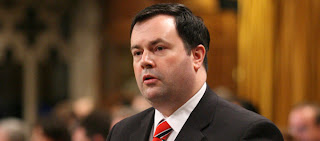Further to my post of 30 September 2011, in a report in Saturday’s Globe
and Mail, Prime Minister Stephen
Harper confirmed that his government is making “profound” changes to Canada’s
immigration system in anticipation of escalating competition from other
developed nations for skilled immigrants.
http://vicg8hr.blogspot.ca/2011/10/hot-hr-election-issues.html
http://vicg8hr.blogspot.ca/2011/10/hot-hr-election-issues.html
Canada currently admits between 240,000 and 265,000 new permanent
residents a year. For decades it
has been one of only about half a dozen countries worldwide to allow immigration. (The others include
the United States, Australia, and Israel.) But now other industrialized countries are opening their
doors to immigrants to compensate for the reduced growth and aging
demographics of their domestic populations.
In the face of this rising global competition, Mr. Harper says Canada
must improve its process for targeting and selection to ensure that
it attracts sufficient numbers of immigrants, as well as people with the
most desirable skills, expertise, and investment capacity. Mr. Harper describes
his Conservative government's changes to the immigration system as shifting from a system that merely receives applications and processes them on a
first-come-first-serve basis to a more proactive one that chooses people based
on the country’s priorities and how much the applicants can benefit Canada.
http://www.theglobeandmail.com/news/politics/canada-needs-to-get-competitive-to-attract-skilled-immigrants-harper/article5179369/
http://www2.macleans.ca/2012/11/12/fundamental-change-on-immigration/
http://www.theglobeandmail.com/news/politics/canada-needs-to-get-competitive-to-attract-skilled-immigrants-harper/article5179369/
http://www2.macleans.ca/2012/11/12/fundamental-change-on-immigration/
 Mr. Harper’s statements come soon after three further developments
affecting Canadian immigration practices:
The first is that Canada's Minister of Citizenship and Immigration,
Jason Kenney (shown at right), announced earlier this month that the backlog of skilled
immigrant applications, which has clogged the system for years, is declining
rapidly and will be eliminated by the end of 2013. Mr. Kenney said about 100,000 applications are still in the
system, down from 640,000 just a few years ago.
Mr. Harper’s statements come soon after three further developments
affecting Canadian immigration practices:
The first is that Canada's Minister of Citizenship and Immigration,
Jason Kenney (shown at right), announced earlier this month that the backlog of skilled
immigrant applications, which has clogged the system for years, is declining
rapidly and will be eliminated by the end of 2013. Mr. Kenney said about 100,000 applications are still in the
system, down from 640,000 just a few years ago.http://www.cbc.ca/news/canada/toronto/story/2012/11/02/pol-kenney-backlog-skilled-workers.html
The second development occurred last week, when Mr. Harper’s government launched a review of the federal Temporary Foreign Worker
program, which brings some 200,000 temporary workers into Canada each year from
foreign countries. The review was
prompted by controversy following the government’s decision to hire hundreds of
Chinese nationals through the program to work in British Columbian mines. Criticisms of the program include that
it lets foreigners take jobs away from Canadians and creates a second class of
labourers that puts a downward pressure on wages. (In October, unemployment in Canada remained at 7.4 percent,
following two consecutive months of increases.)
The third development, also announced earlier
this month by Mr. Kenney, is a revamped points system to assess people who
apply for immigration. Schedule to take effect in 2013, the revised system will place new
emphasis on having employers invite immigrants into the country and place them
in jobs on arrival. It also includes pre-assement of overseas applicants based on their education, prior Canadian work experience, age, and English or French language
skills. The Conservatives’ current immigration system already treats temporary
workers from foreign counties who have obtained Canadian work experience as one
of the best prospects to enlist as new immigrants, because they have already
proven they can integrate into Canadian society and meet the country’s
labour-market needs.
To date, discussions sparked on LinkedIn by the Globe’s Saturday report seem to emphasize the disparity
between the public image of Canada as a land of golden opportunity for
newcomers versus the reality that skilled immigrants may encounter upon arrival
in this country, when they may find themselves severely underemployed.*
Mr. Kenney says the recent immigration reforms were devised with exactly this disparity in mind: "I don't think we're being true to
our reputation as a land of opportunity by inviting engineers to come here and
come and drive cabs, or medical doctors to come here and be night watchmen or
convenience store clerks," he comments.
http://www.torontosun.com/2012/11/08/new-points-system-for-immigrants-coming-in-2013
http://www.cic.gc.ca/english/index.asp
http://www.cicsnews.com/http://www.cic.gc.ca/english/index.asp
http://www.cic.gc.ca/english/department/media/releases/2012/2012-08-17.asp
http://2vancouver.com/en/blog/new-skilled-worker-skilled-trades-and-canadian-experience-class
http://www.immigrationmatters.co.uk/canada-to-reduce-skilled-worker-immigration.html
* For an example, LinkedIn members might search and review the discussion started on Saturday by Nicole Jelly, a global HR strategist and cross-cultural expert in Calgary, Alberta. Mr. Kenney is the Member of Parliament for Calgary Southeast.
No comments:
Post a Comment